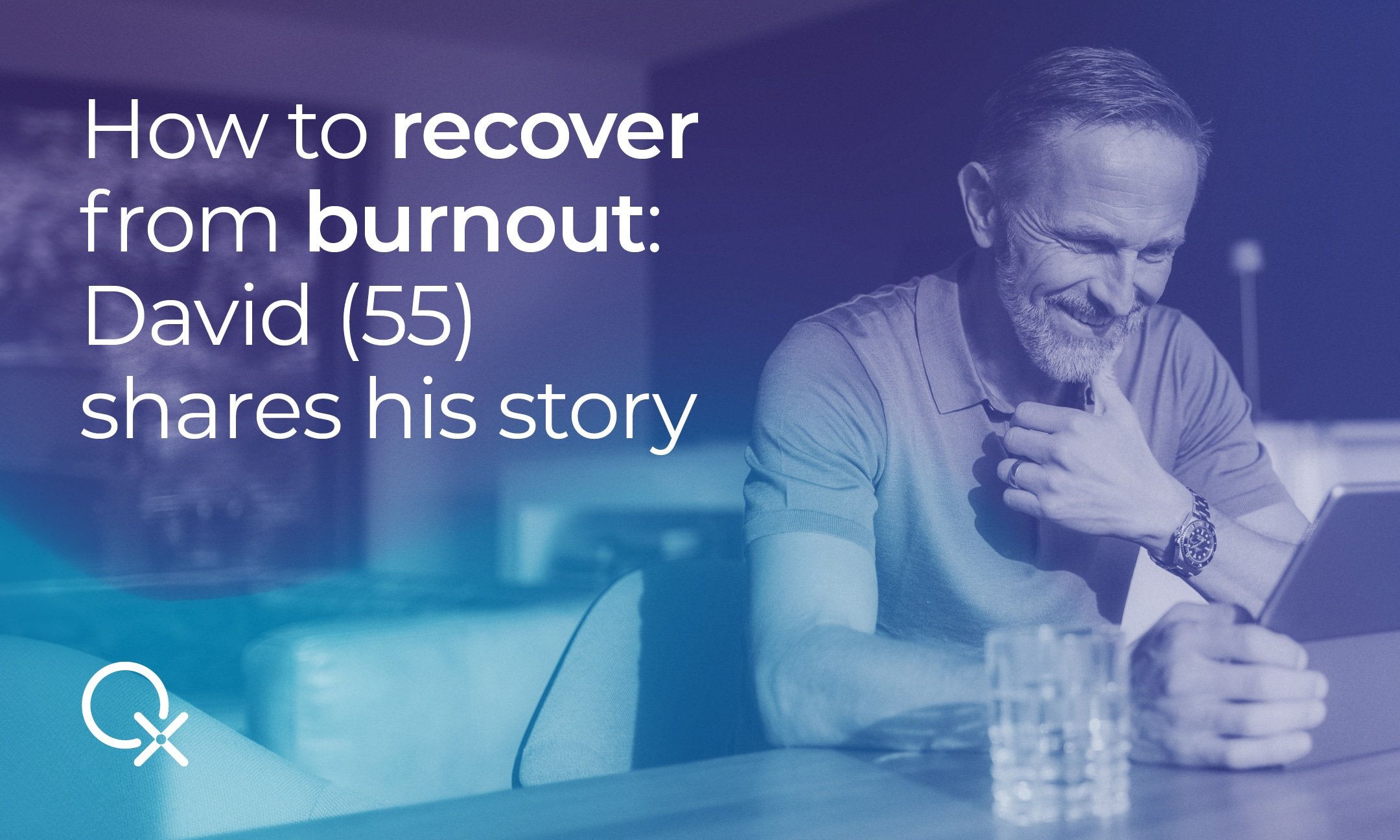
David: “I love my job, but it comes with pressing deadlines and high demands. By trying to keep up with the pace of my professional life, I pushed my body past its limits. That did a lot of damage.” David ended up with burnout. Margret Margrétardóttir helped him navigate his journey towards recovery.
David: I have my own construction company, and I really want il à work. At the time I couldn’t afford to hire aider. My workload became excessive, and that left me with little room for self-care.
Burnout is when you hit a point of being both physically and emotionally drained. This often happens when you deal with long-term stress, like in a demanding job. Signs of burnout include feeling tired almost constantly and experiencing a sense of helplessness or defeat.
David: I felt exhausted all the time, both physically and emotionally, and I had constant migraine. When my marriage started to deteriorate, I realized I needed to make a drastic change in my life. These work burnout symptoms had to stop.
Margret Margrétardóttir: When I first met David, he was drinking large amounts of coffee and energy drinks. Yet those stimulants only exacerbated his problems. Caffeine dehydrates the body, depletes it of minerals, and puts a lot of pressure on the adrenal glands. And that affects the way the body handles stress.
David: The first important step was to acknowledge the toll my lifestyle had taken on my body. I was chronically dehydrated and didn’t get the nutrients I needed. Step by step, Margret helped me to reduce my daily coffee intake from 10 cups to 2, and to drink more water. I believe hydration has been key to my recovery. Headaches disappeared almost completely once I started paying attention to it. Healthy meals, too, are now one of my priorities.
Margret Margrétardóttir: Quantum biofeedback sessions were an integral part of David’s healing process as well. Our sessions rebalanced David’s energy, corrected his adrenal function, and guided him back to a state of equilibrium. David was also quick to incorporate stress-reducing exercises into his daily routine. Yoga and meditation became powerful tools to manage stress and to reconnect with his inner self. It only confirms that reserving just a short amount of time for yourself each day can make a significant difference in terms of mental and emotional resilience.
David: It’s been about four months since I made a real turnaround in my life. My energy levels are pretty much back to how they were before I hit burnout, and happily, I’ve patched things up with my family too. To avoid another burnout, I prioritize self-care and meticulously arrange my work setup to best accommodate my needs. I’ve figured out that recovering from burnout isn’t just about dealing with work stress. It’s also about things like staying hydrated, getting good nutrition, and managing stress in a way that works for you.
Margret Margrétardóttir suffered a serious accident in 1995 and was deemed incurable by doctors. In 2005, she discovered biofeedback technology. Her health improved and she bought her own biofeedback device in 2006. Fascinated by the technology, Margrét became a biofeedback specialist and teacher at the QX World Health Academy and has been sharing her knowledge with the world ever since.
David B. (55) est a contractor from Cork, Ireland.
+1 (989) 681-1063
+1 (856) 322-8589